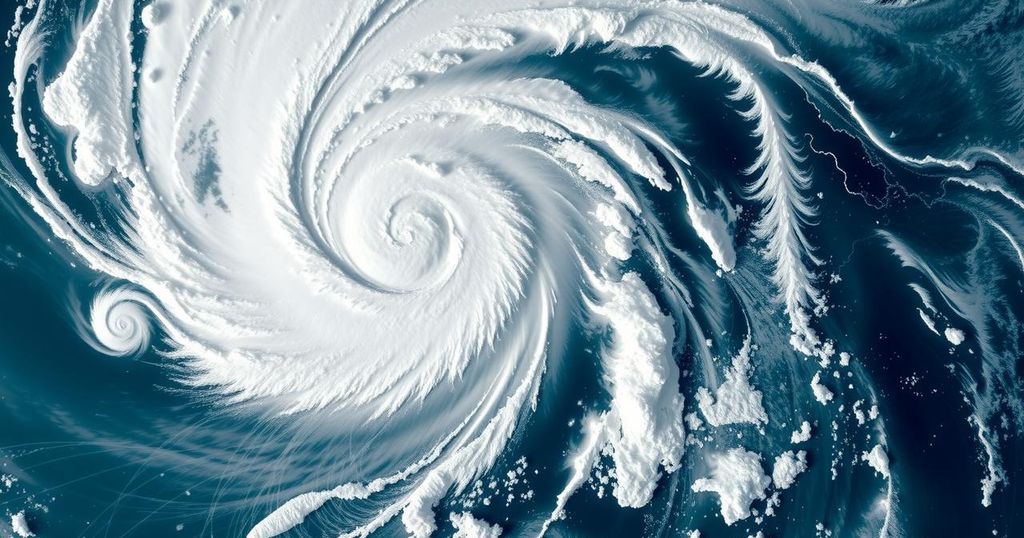Tropical Storm Dikeledi has struck northern Mozambique, leading to three confirmed deaths in Madagascar and flooding in Mayotte. INAM has issued flood warnings, predicting heavy rainfall and strong winds, while President Filipe Nyusi has urged citizens to seek shelter and prepare adequately. Cyclones are common in this region between November and March, and global warming is believed to have increased their intensity.
Tropical Storm Dikeledi made landfall in northern Mozambique on Monday, having already resulted in the deaths of at least three individuals in Madagascar and causing significant flooding in Mayotte, a French territorial possession. As reported by Meteo-France, the storm intensified upon reaching the coastal Nampula region, unleashing daunting winds and heavy rainfall. Past cyclones have severely impacted the region, with Cyclone Chido claiming over 120 lives in northern Mozambique last December after previously causing damage in Mayotte.
In response to the impending storm, Mozambique’s National Institute of Meteorology (INAM) issued flood advisories, predicting rainfall accumulations of up to 200 millimeters (approximately eight inches) within a 24-hour timeframe, along with gusts potentially surpassing 180 kilometers (110 miles) per hour. President Filipe Nyusi emphasized the necessity for residents in affected areas to take immediate safety measures, such as locating proper shelter and securing sufficient food and water supplies.
Dikeledi caused at least three fatalities in Madagascar when it struck the island during the past weekend, as disclosed by the National Office for Risk and Disaster Management. The storm, having struck Madagascar’s northern region as a cyclone, brought harsh winds and intense rainfall. Meteo-France has also given warnings regarding potential further impacts on Madagascar as Dikeledi continues its southward trajectory in the coming week.
The occurrence of cyclones in the Indian Ocean is typical from November to March, with current surface water temperatures nearing 30 degrees Celsius (86 degrees Fahrenheit) in the region contributing to heightened storm intensity, an effect linked to global warming that has been similarly observed in the North Atlantic and Pacific regions.
Tropical storms and cyclones are frequent weather phenomena in the Indian Ocean, particularly between the months of November and March. The region is prone to the development of these storms, which can lead to devastating impacts on local populations, infrastructure, and ecosystems. Tropical Storm Dikeledi exemplifies such threats, having already claimed lives and caused flooding in neighboring territories prior to its impact on Mozambique. In addition, rising sea temperatures due to global warming have been noted to exacerbate the intensity of these storms, increasing the risks faced by coastal communities in affected regions.
In summary, Tropical Storm Dikeledi has made a significant impact on northern Mozambique, highlighting the persistent threat of cyclones in the region. With prior tragedies resulting from similar weather events, current advisories emphasize the importance of preparedness in vulnerable communities. As the effects of climate change continue to manifest, the escalating intensity of storms poses an urgent concern for the safety and well-being of residents in affected areas.
Original Source: www.barrons.com






